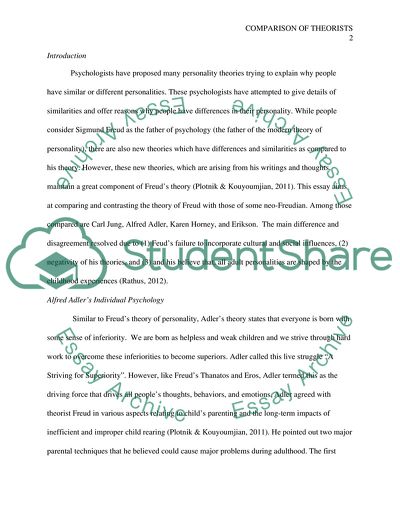Cite this document
(A Comparison of the Theories of Jung, Adler, Horney, and Erikson with the Theory of Freud Essay Example | Topics and Well Written Essays - 1500 words, n.d.)
A Comparison of the Theories of Jung, Adler, Horney, and Erikson with the Theory of Freud Essay Example | Topics and Well Written Essays - 1500 words. https://studentshare.org/psychology/1811245-comparison-of-theorists
A Comparison of the Theories of Jung, Adler, Horney, and Erikson with the Theory of Freud Essay Example | Topics and Well Written Essays - 1500 words. https://studentshare.org/psychology/1811245-comparison-of-theorists
(A Comparison of the Theories of Jung, Adler, Horney, and Erikson With the Theory of Freud Essay Example | Topics and Well Written Essays - 1500 Words)
A Comparison of the Theories of Jung, Adler, Horney, and Erikson With the Theory of Freud Essay Example | Topics and Well Written Essays - 1500 Words. https://studentshare.org/psychology/1811245-comparison-of-theorists.
A Comparison of the Theories of Jung, Adler, Horney, and Erikson With the Theory of Freud Essay Example | Topics and Well Written Essays - 1500 Words. https://studentshare.org/psychology/1811245-comparison-of-theorists.
“A Comparison of the Theories of Jung, Adler, Horney, and Erikson With the Theory of Freud Essay Example | Topics and Well Written Essays - 1500 Words”. https://studentshare.org/psychology/1811245-comparison-of-theorists.


